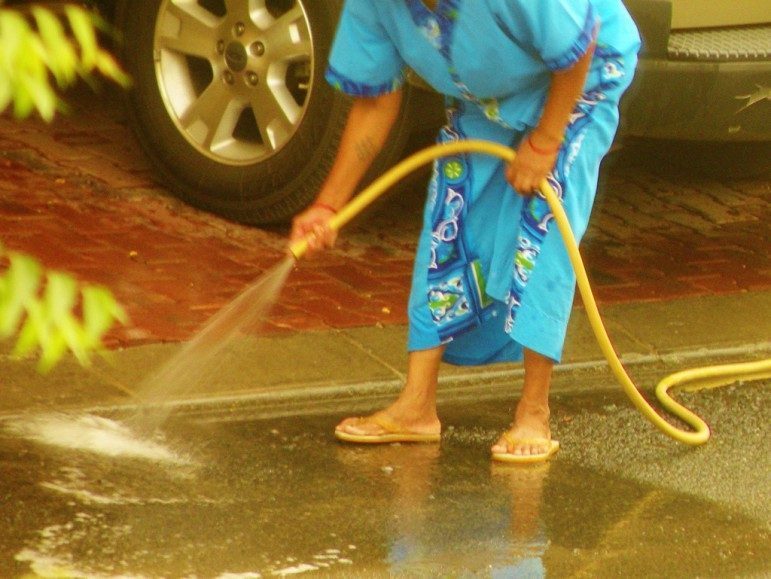
New legislation that will boost legal protections for nannies, gardeners, drivers and other domestic help in Qatar has been signed into law by the Emir.
Once Law No.15 of 2017 takes effect, those who hire household workers will be required to have a written contract with their employees.
Because domestic workers were not previously covered by the Labor Law, contracts were not mandated.

This meant they could not file complaints against their employers with the labor ministry.
Health care, vacation and sick leave
The new law is groundbreaking in that it also guarantees 10-hour workdays with meal, worship and rest breaks. It also mandates a day off a week for domestic help.
This was a point of contention when the GCC tried to agree to a unified contract in 2015.

According to a copy of the law published in Al Sharq, house help is also entitled to:
- Three weeks of paid vacation a year, as well as a paid roundtrip ticket home every two years;
- Free healthcare and adequate accommodation and clothing;
- On-time salary payments at the end of each month, either through direct deposit or cash;
- End-of-service benefits equivalent to three weeks’ wages of work per year; and
- Fair treatment that involves maintaining their dignity and protecting them against physical and psychological harm.
Additionally, the domestic worker should not be docked for any recruitment costs and cannot be taken out of the country for work without their permission.
The new law also sets age limits for domestic workers, who must be between 18 and 60 years old. However, the labor minister can grant an exception for older workers.
Each party must have a copy of the contract, and it also must be filed with the government.
Violating the law could result in fines of QR5,000 to QR10,000.
In return
In return, domestic workers must respect “the laws, customs, social traditions and religious and moral values” of Qatar.
They should perform their duties as well as preserve the secrets of their employers and not harm their interests, the law states.

Additionally, they cannot work for others (either paid or not) without violating the terms of their contract.
Failing to fulfill these requirements could result in the immediate termination of their contract without end-of-service benefits.
Step forward
Qatar has been discussing a draft law for several years without results.
But the passage of this legislation comes amid scrutiny from the International Labor Organization (ILO).
The UN body has deliberated sanctioning Qatar for violating human rights, but recently gave authorities until November to prove they are serious about reform.

In the past, rights groups have said lack of legal protection leaves Qatar’s 84,000 female house helpers particularly vulnerable.
Some have been subjected to excessive working hours, late and unpaid wages, restrictions on movement and sexual assaults, groups have pointed out.
Many people cautiously hailed the new legislation as a step forward when it was first proposed earlier this year.
But as with all of Qatar’s laws, enforcement will be paramount, they said.
Additionally, Migrant-Rights.org previously pointed out that when it comes to a worker’s day off, the law doesn’t say whether they are allowed to leave the house.
“Workers should be guaranteed the right to both freedom of mobility and autonomous use of leisure time on days off. It is also of utmost importance to permit a worker access to her own phone to reduce her isolation,” the group added.
Thoughts?






